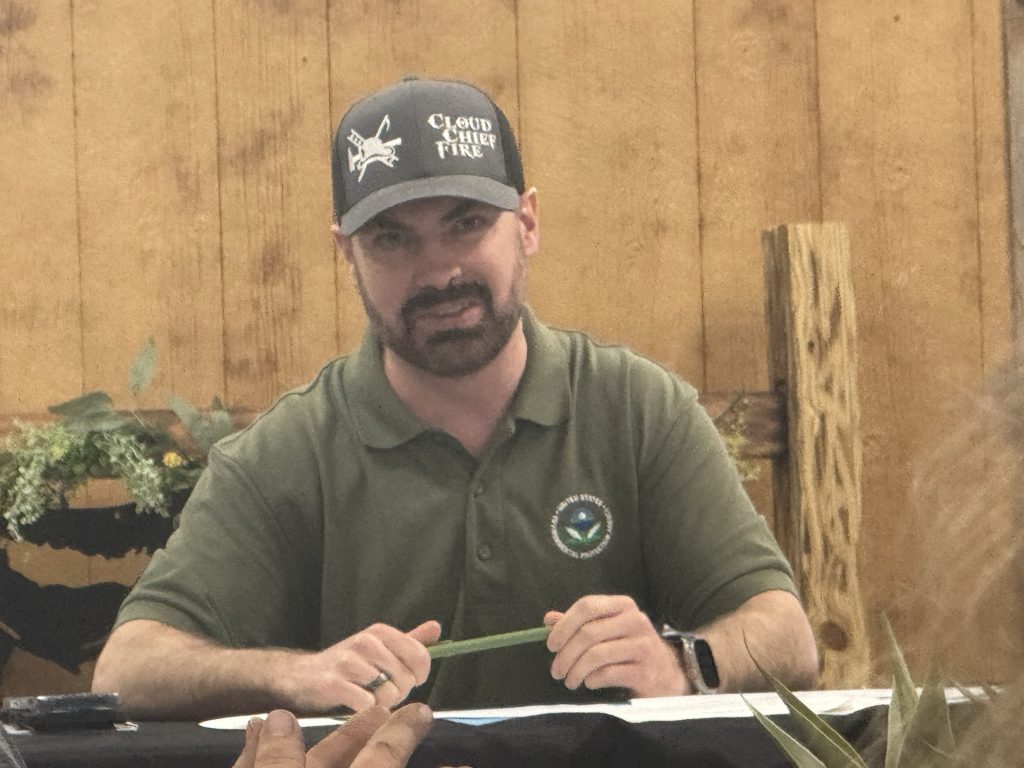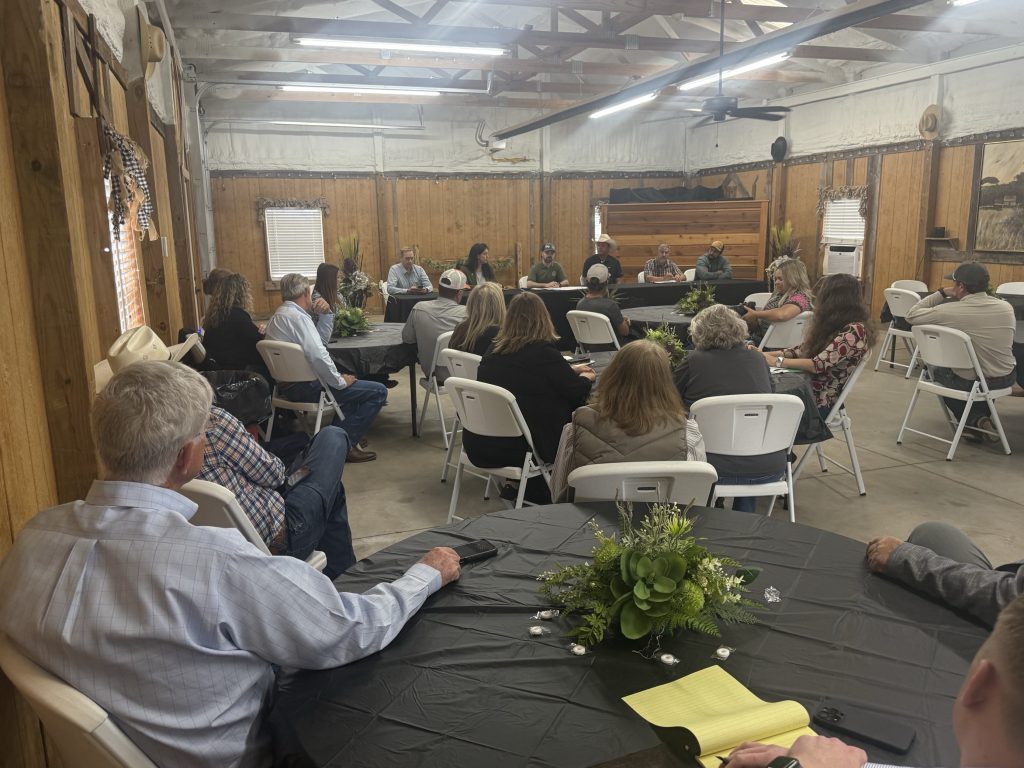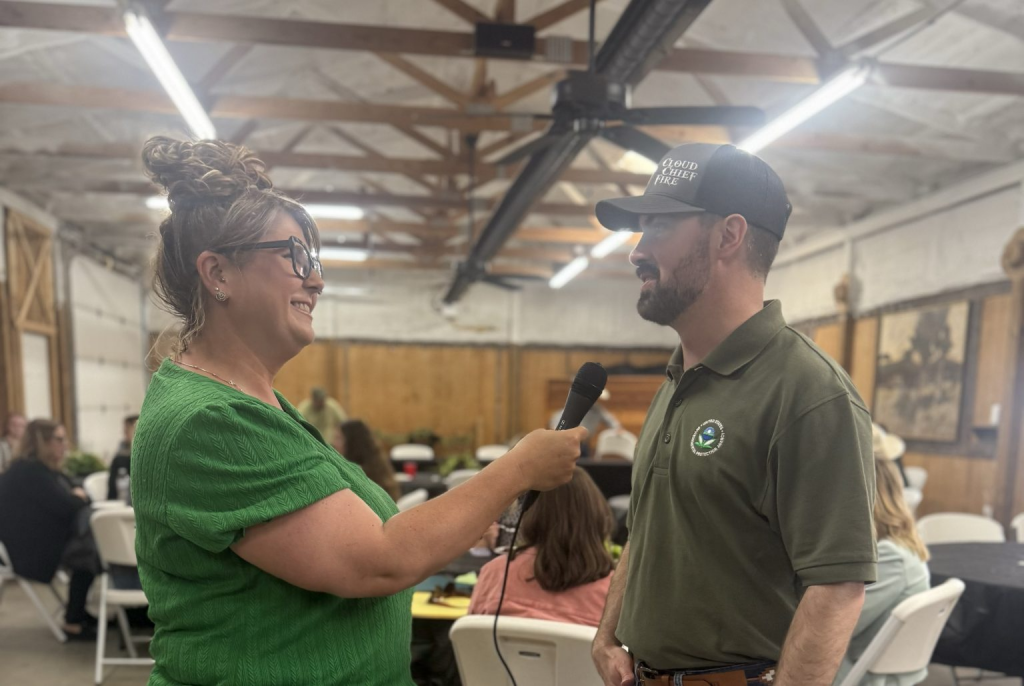
Scott Mason, a fifth-generation farmer and rancher from Cordell, has been appointed by President Donald Trump as the 14th regional administrator for the U.S. Environmental Protection Agency’s (EPA) South Central Region. Farm Director KC Sheperd spoke with Mason today during a Farm Tour and Stakeholder Meeting at Davis Angus, just south of Burns Flat. The event hosted by the Oklahoma Department of Agriculture, Food and Forestry, and Nocona and Jordan Cook drew numerous agricultural organizations, including the OCA, OKFB, AFR, OK Pork, and LMA, as well as other producers from across Oklahoma, all eager to discuss EPA policies that impact the state’s farmers and ranchers.
This is Mason’s second appointment to the EPA, having served as the Director of the EPA’s American Indian Environmental Office during President Trump’s first administration. He was also a member of the White House Council on Native American Affairs, where he served as co-chair of the Council’s Committee on Infrastructure. Most recently, Mason served as the Deputy Secretary of Energy of Oklahoma for three years, until he got the call to return to the EPA to serve under the second Trump administration.
His territory under the South Central Region, or Region 6, encompasses Arkansas, Texas, New Mexico, Oklahoma, and Louisiana, including 66 tribal nations. “Our headquarters is down in Dallas, but I try to get back home to western Oklahoma every chance I get, which is pretty much every weekend.”

The phrase, “It’s a new day at EPA,” has been tossed around under the new Trump administration, and Sheperd asked for clarification of its meaning to farmers and ranchers. “It really means a lot better relationships with our state and local partners; working together – being collaborators, not adversaries,” Mason said. “There has been so much of this overly burdensome regulatory red tape and things like that that have taken place over the last four years, and frankly, beyond that. We are trying to get a rein on that, and just have common-sense regulations. At the end of the day, that is what people want.”
He listed the work to clarify WOTUS to fit the intent of the Supreme Court’s Sackett decision as one avenue of increasing regulatory certainty.
“That’s a big one that I think we can point to immediately, but there are so many others out there, too,” he said. “That’s exactly why we had this roundtable today is to get straight from the farmers and ranchers who have experienced issues that EPA regulates, to hear from them how we can better serve the people who put us in office.”

He mentioned participation in open comment periods, sending emails, and calling the EPA as other ways for farmers and ranchers to be heard. “My door is open, I want to listen,” Mason said. “Especially to folks that I know out here that have my number – call me up, that’s what I’m here for.”
He advised producers who are waiting for clarification of pesticide and herbicide regulations to be patient because there is a huge backlog in Washington with the pesticides issue. “We are going through each one of those with a fine-toothed comb, but at the end of the day, you are going to see common sense. You aren’t going to see anything that is hurtful to our farmers or ranchers,” he said. “The last thing we want to do is rain down something from Washington that is going to be a problem for farmers and ranchers.”

















